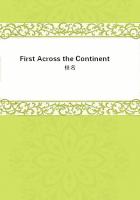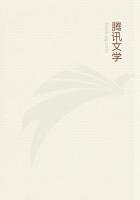He stood with his hands in his pockets; he had carried his eyes to the fragments on the chimney-piece, and she could already distinguish the element of relief, absolutely of succour, in his acceptance from her of the opportunity to consider the fruits of their friend's violence--every added inch of reflexion and delay having the advantage, from this point on, of counting for him double. It had operated within her now to the last intensity, her glimpse of the precious truth that by her helping him, helping him to help himself, as it were, she should help him to help HER. Had n't she fairly got into his labyrinth with him?--was n't she indeed in the very act of placing herself there for him at its centre and core, whence, on that definite orientation and by an instinct all her own, she might securely guide him out of it? She offered him thus assuredly a kind of support that was n't to have been imagined in advance and that moreover required--ah most truly!--some close looking at before it could be believed in and pronounced void of treachery "Yes, look, look," she seemed to see him hear her say even while her sounded words were other--"look, look, both at the truth that still survives in that smashed evidence and at the even more remarkable appearance that I'm not such a fool as you supposed me. Look at the possibility that since I AM different (188) there may still be something in it for you b if you're capable of working with me to get that out. Consider of course as you must the question of what you may have to surrender on your side, what price you may have to pay, whom you may have to pay WITH, to set this advantage free; but take in at any rate that there IS something for you if you don't too blindly spoil your chance for it." He went no nearer the damnatory pieces, but he eyed them from where he stood with a degree of recognition just visibly less to be dissimulated; all of which represented for her a certain traceable process. And her uttered words meanwhile were different enough from those he might have inserted between the lines of her already-spoken. "It's the golden bowl, you know, that you saw at the little antiquario's in Bloomsbury so long ago--when you went there with Charlotte, when you spent those hours with her, unknown to me, a day or two before our marriage. It was shown you both, but you did n't take it; you left it for me, and I came upon it, extraordinarily, through happening to go into the same shop on Monday last; in walking home, in prowling about to pick up some small old thing for father's birthday after my visit to the Museum, my appointment there with Mr. Crichton, of which I told you.
It was shown me and I was struck with it and took it--knowing nothing about it at the time. What I now know I've learned since--I learned this afternoon, a couple of hours ago; receiving from it naturally a great impression.
So there it is--in its three pieces. You can handle them--don't be afraid--if you want to make sure the thing IS the thing you and Charlotte saw together.
Its (189) having come apart makes an unfortunate difference for its beauty, its artistic value, but none for anything else. Its other value is just the same--I mean that of its having given me so much of the truth about you. I don't therefore so much care what becomes of it now--unless perhaps you may yourself, when you come to think, have some good use for it. In that case," Maggie wound up, "we can easily take the pieces with us to Fawns."
It was wonderful how she felt, by the time she had seen herself through this narrow pass, that she had really achieved something--that she was in fine emerging with the prospect a little less contracted. She had done for him, that is, what her instinct enjoined; had laid a basis not merely momentary on which he could meet her. When by the turn of his head he did finally meet her this was the last thing that glimmered out of his look; but it none the less came into sight as a betrayal of his distress and almost as a question of his eyes; so that for still another minute before he committed himself there occurred between them a kind of unprecedented moral exchange over which her superior lucidity presided. It was not however that when he did commit himself the show was promptly portentous. "But what in the world has Fanny Assingham had to do with it?"
She could verily, out of all her smothered soreness, almost have smiled: this enquiry so affected her as giving the whole thing up to her. But it left her only to go the straighter. "She has had to do with it that I immediately sent for her and that she immediately came. She was the first person I wanted to see--(190) because I knew she'd know. Know more about what I had learned, I mean, than I could make out for myself. I made out as much as I could for myself--that I also wanted to have done; but it did n't in spite of everything take me very far, and she has really been a help.
Not so much as she would like to be--not so much as, poor dear, she just now tried to be; yet she has done her very best for you--never forget that!--and has kept me along immeasurably better than I should have been able to come without her. She has gained me time; and that, these three months, don't you see? has been everything."
She had said "Don't you see?" on purpose, and was to feel the next moment that it had acted. "'These three months'?" the Prince asked.
"Counting from the night you came home so late from Matcham. Counting from the hours you spent with Charlotte at Gloucester; your visit to the cathedral--which you won't have forgotten describing to me in so much detail.
For that was the beginning of my being sure. Before it I had been sufficiently in doubt. Sure," Maggie developed, "of your having, and of your having for a long time had, two relations with Charlotte."
He stared, a little at sea, as he took it up. "'Two'--?"















